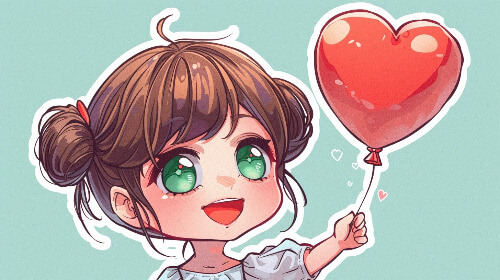Recognizing the Signs of Child Abuse and How to Protect Your Child
Your primary goal is to keep your children safe and loved. Unfortunately though, child abuse does occur and it is important that you acknowledge it. When you are aware of the signs of child abuse you can protect your child physically and mentally.

How Do You Protect Your Child from Abuse?
Physical abuse happens when a person physically harms a child on purpose.
This can include corporal punishment, spanking, shaking, burning, or any other form of physical harm.
Here are some steps you can take to protect your child:
- Be Informed: Learn about the signs of child abuse and to recognize them early. These signs could include unexplained bruises or burns and consistent fractures.
- Create a Safe Environment: Ensure your home is a safe place where violence is not tolerated.
- Encourage Open Communication: Teach your child that they can talk to you about anything. This helps them feel safe to share if something is wrong.
- Know Who is Around Your Child: Be aware of the adults and older children who interact with your child, even if they are family members, friends, or caregivers.
- Educate Your Child: Teach your child about their body and their right to say no to unwanted touching. Make sure that they have the knowledge about what is and isn't appropriate.
What Are the Signs of Child Abuse?
Observing the signs of child abuse early can prevent unnecessary trauma to the child. Here are some indicators to look out for:
- Physical Signs: Unexplained bruises, cuts, burns, or fractures. Injuries that don't match the given explanation.
- Behavioral Signs: Changes in behavior such as becoming withdrawn, anxious, or overly aggressive. Regression to earlier behaviors, such as bed-wetting or thumb-sucking.
- Emotional Changes: Sudden changes in self-esteem, excessive fear of a particular person or place, or an unnatural interest or knowledge of sexual matters.
 Four teen boys and a girl standing with arms crossed having a serious discussion.
Four teen boys and a girl standing with arms crossed having a serious discussion.- School Issues: Problems at school, such as difficulties concentrating, declining grades, or frequent absences.
Emotional Abuse: Is It as Traumatizing as Physical Abuse?
Emotional abuse is just as harmful, if not more so, than physical abuse. You just can't see it, making it harder to detect.
Included in the emotional abuse is constant criticism, threats, rejection or the withholding of love and support.
Any effects your child may experience will be a lack of self-worth and emotional well-being.
Effects of Emotional Abuse on a Child
- Low Self-Esteem: Children who suffer from emotional abuse often feel worthless and undeserving of love.
- Mental Health Issues: Anxiety, depression, and other mental health problems are common in emotionally abused children.
- Difficulty Forming Relationships: Trust issues and difficulty forming healthy relationships can result from emotional abuse.
- Academic Problems: Similar to physical abuse, emotional abuse can lead to difficulties in school and lower academic achievement.
It’s Okay to Report Child Abuse
Reporting child abuse is so important if you want to protect your child and to get them the help they need.
If you suspect that your’s or any other child is being abused:

- Trust Your Instincts: If something doesn’t feel right, it’s better to report and be wrong than to stay silent and risk your child’s safety.
- Know Who to Contact: You can report suspected abuse to local child protective services, the police, or a child abuse hotline.
- Remain Anonymous: Many reporting systems allow you to remain anonymous if you fear retaliation.
- Always Document Your Concerns: If you see signs of abuse on your child, be sure to keep good records. Make them as detailed as possible, take pictures if you can, this will all be helpful when you report it.
Tell your child that it is okay to tell you about any child abuse they may be experiencing, or they can go and report it to the police or a child abuse hotline themselves.
Sexual Child Abuse
The following topic may be uncomfortable for both you and your child to discuss, but it's something you need to do.
Here’s how to approach this sensitive topic:
- Start Early: Use age-appropriate language to teach your child about their body and boundaries.
- Be Direct but Gentle: Explain that some touches are not okay and that they should tell you if anyone makes them uncomfortable.
- Create an Open Dialogue: Encourage your child to ask questions and assure them they can come to you with anything, no matter how small.
- Resources: You can use books and educational videos to help teach them about this topic.
- Reassure Your Child: Let your child know that it is always okay to report such matters and that they will not be in trouble for telling you.
In most cases you will not even know it is happening. The person performing these acts will threaten to harm your child or loved ones if they tell.
If it is something that you do not talk about with your kids while they are young, they may think that it is just normal behaviour.
Then later in life when they do learn about relationships and intimacy, they will be traumatized and may blame you for not informing them that such behaviour goes on.
The worse about all of this is, the majority of the time these predators are family, friends or neighbours.
Additional Important Information for Parents
 Animated young girl holding a red balloon in the air.
Animated young girl holding a red balloon in the air.- Support Networks: Build a support network of people you trust, friends, family or professionals who can offer guidance and assistance.
- Regular Check-Ins: Regularly check in with your child about their feelings and experiences. This reinforces that you are a trusted confidant.
- Professional Help: If your child has been abused, seek professional help from counselors or psychologists specializing in trauma.
At All Costs
Protecting your child from the signs of child abuse and knowing how to address them is necessary in protecting your children.
Be sure to teach your child that it’s okay to report any type of abuse that they may be experiencing to you or any other trusted adult.
This way you or the trusted adult can contact the proper authorities so that the matter can be investigated.
When properly informed you can create a safer, healthier world for your children.





















New! Comments
Have your say about what you just read! Leave me a comment in the box below.